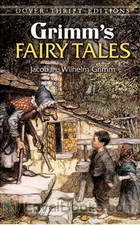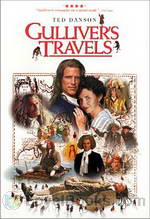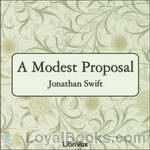|
Books Should Be Free Loyal Books Free Public Domain Audiobooks & eBook Downloads |
|
|
Books Should Be Free Loyal Books Free Public Domain Audiobooks & eBook Downloads |
|
Top Authors |
|---|
|
Book type:
Sort by:
|
By: Henry James (1843-1916) | |
|---|---|
 What Maisie Knew
What Maisie Knew
When Beale and Ida Farange are divorced, the court decrees that their only child, the very young Maisie, will shuttle back and forth between them, spending six months of the year with each. The parents are immoral and frivolous, and they use Maisie to intensify their hatred of each other. | |
 The Pupil
The Pupil
Pemberton, a young American with an Oxford education and out of money, takes a job tutoring Morgan Moreen, the 12-year old son of an American couple living in Europe in a style not quite matched by their income. Morgan, who is highly intelligent, is also precocious and perceptive enough to understand his parents' pretentious aimlessness. Nor, as it happens, do his parents pay Pemberton the salary to which they'd agreed -- shouldn't he be satisfied, after all, by his life with them, and by the joy of tutoring young Morgan? Alternately charmed and put off by the Moreen family, Pemberton is left to choose between his attachment to his young pupil and his need to get on in life. | |
 In the Cage
In the Cage
In the Cage is a novella by Henry James, first published as a book in 1898. This long story centers on an unnamed London telegraphist. She deciphers clues to her clients' personal lives from the often cryptic telegrams they submit to her as she sits in the "cage" at the post office. Sensitive and intelligent, the telegraphist eventually finds out more than she may want to know. | |
 The Figure in the Carpet
The Figure in the Carpet
The story ostensibly concerns a young literary critic who greatly admires the writer Hugh Vereker. A meeting with Vereker, however, shows him that he — and all other critics — have in fact missed the great point of Vereker’s work, and the critic (and his editor) thereupon devote themselves to trying to unravel the mystery. James’s story, however, almost certainly has an autobiographical side to it, perhaps itself criticizing those critics who couldn’t see, or wouldn’t see, the figures lost in the carpet of his own writing. | |
 The Real Thing
The Real Thing
The Real Thing is, on one level, a somewhat ironic tale of an artist and two rather particular models. Yet it also raises questions about the relationship between the notion of reality in our humdrum world, and the means that an artist must use in trying to achieve, or reflect, that reality. Though the protagonist is an artist and illustrator of books, not a writer, it's not hard to imagine that James has himself, and other writers, in mind. | |
 A Small Boy and Others
A Small Boy and Others
A Small Boy and Others is a book of autobiography by Henry James published in 1913. The book covers James’s earliest years and discusses his intellectually active family, his intermittent schooling, and his first trips to Europe. | |
 The Death of the Lion
The Death of the Lion
This short novel is a black comedy about fame, manipulation, pretension, and surviving it all. The narrator, a reprehensible and seedy journalist, sets out to interview a minor author, and in his own quest for glory, turns the author into the celebrity of the day. The sudden and untimely death of the author, with his latest work unfinished, presents a troubling dilemma for the narrator, which he resolves with no more conscience than he had when he began his quest. (Introduction by Christine Dufour) | |
 The Spoils of Poynton
The Spoils of Poynton
The recently widowed Adela Gereth, a lover of beauty and passionate collector of fine objects, strikes up a friendship with the young Fleda Vetch, when both of them find themselves guests in the tasteless house of the Brigstock family. Mrs. Gereth fears that her son Owen, an honorable but somewhat unimaginative young man, may take up with one of the Brigstock girls, and indeed he presently announces his engagement to Mona, the eldest daughter. That means that Mrs. Gereth will have to leave Poynton, the beautiful house that she and her husband filled with the furniture, china, tapestries, and other objects that they lovingly collected over the years... | |
 The Sacred Fount
The Sacred Fount
Published in 1901, The Sacred Fount delves into the interior observations and obsessions of one Englishman during a weekend gathering in the country. Regarding himself as a master of human psychology, the narrator watches the goings-on of the other guests and weaves theories about the interpersonal implications of what he witnesses, leaving the not infrequently perplexed reader the task of sorting out whether his conclusions are facts or fancies. (Introduction by S. Kovalchik) | |
 Sir Dominick Ferrand
Sir Dominick Ferrand
“Levity” is not a word often applied to Henry James, but this story has about it an attractively lighthearted quality. It tells of Peter Baron, a poor, young struggling writer of adequate, if not transcendent, talent, who lives in a dreary London boarding house inhabited also by a mysteriously clairvoyant and beautiful young widow, with her small boy. When Baron buys himself a second-hand writing desk to stimulate the creative juices, he finds carefully hidden within it a cache of letters that appear to compromise a recently deceased statesman... | |
 The Bostonians (Vol. 1 & 2)
The Bostonians (Vol. 1 & 2)
This bittersweet tragicomedy centers on an odd triangle of characters: Basil Ransom, a political conservative from Mississippi; Olive Chancellor, Ransom's cousin and a Boston feminist; and Verena Tarrant, a pretty, young protégée of Olive's in the feminist movement. The storyline concerns the struggle between Ransom and Olive for Verena's allegiance and affection, though the novel also includes a wide panorama of political activists, newspaper people, and quirky eccentrics. | |
 The Coxon Fund
The Coxon Fund
This novella explores the relationship between Frank Saltram, a charismatic speaker who is also a freeloader; Ruth Anvoy, a young American who visits her widowed aunt, Lady Coxon, an American who married a Brit; and George Gravener, a British intellectual with a future in politics who becomes engaged to Ms. Anvoy. The story revolves around the dispersal of The Coxon Fund, a sum of money left by Ms. Anvoy’s father with the stipulation that is be given to a great man to publish and pursue moral truth. | |
 Roderick Hudson
Roderick Hudson
Published as a serial in 1875, Roderick Hudson is James's first important novel. The theme of Americans in Europe, so important in much of James's work, is already central to the story. Hudson is a young law student in Northampton, Massachusetts, who shows such surprising ability as a sculptor that the rich Rowland Mallett, visiting a cousin in Northampton, decides to stake him to several years of study in Rome, then a center of expatriate American society. The story has to do not only with Roderick's growth as an artist and the problems it brings, but also as a man susceptible to his new environment, and indeed his occasional rivalries with his American friend and patron... | |
 The Tragic Muse
The Tragic Muse
| |
 Some Short Stories [by Henry James]
Some Short Stories [by Henry James]
| |
 The Bostonians, Vol. II (of II)
The Bostonians, Vol. II (of II)
| |
 Hawthorne (English Men of Letters Series)
Hawthorne (English Men of Letters Series)
| |
 The Lesson of the Master
The Lesson of the Master
| |
By: Henry james (1843-1916) | |
|---|---|
 Awkward Age
Awkward Age
Nanda Brookenham is coming of age, and thus 'coming out' in London society - which leads to complications in her family's social set in London's fin de siècle life. James presents the novel almost entirely in dialogue, an experiment that adds to the immediacy of the scenes but also creates serious ambiguities about characters and their motives. | |
By: Henry James (1843-1916) | |
|---|---|
 Picture and Text 1893
Picture and Text 1893
| |
 The Outcry
The Outcry
| |
 The Middle Years
The Middle Years
| |
 Pandora
Pandora
| |
 The Diary of a Man of Fifty
The Diary of a Man of Fifty
| |
 The Madonna of the Future
The Madonna of the Future
| |
By: Henry james (1843-1916) | |
|---|---|
 London Life
London Life
A devoted sister attempts to check her sibling's scandalous behavior in the world of British high society. A delightful comedy of Anglo-American manners and a fascinating glimpse of late Victorian London. | |
By: Henry james (1843-1916) | |
|---|---|
 Chaperon
Chaperon
What on earth is a girl to do when London society has convicted her mother of a dreadful sin and has ostracized her? If blood is thicker than water, and the daughter remains loyal to her erring parent, how far will affect her own standing in society (and most important, of course) in the marriage market that is controlled by that society? This is the problem facing Rose Tramore and it will take all her charm -- and perseverance -- to solve it. (Nicholas Clifford) | |
By: Henry James (1843-1916) | |
|---|---|
 The Pension Beaurepas
The Pension Beaurepas
| |
 The Beldonald Holbein
The Beldonald Holbein
| |
 Eugene Pickering
Eugene Pickering
| |
 The Path Of Duty
The Path Of Duty
| |
 Georgina's Reasons
Georgina's Reasons
| |
 Greville Fane
Greville Fane
| |
 Nona Vincent
Nona Vincent
| |
 Louisa Pallant
Louisa Pallant
| |
By: Jacob & Wilhelm Grimm (1785-1863; 1786-1859) | |
|---|---|
 Grimms' Fairy Tales
Grimms' Fairy Tales
Talking animals, wicked stepmothers, valiant tailors, cruel witches! Sixty-two stories that feature familiar figures like Hansel and Gretel, Rapunzel, Rumplestiltskin, The Twelve Dancing Princesses and Snow-White and Rose Red as well as lesser-known characters like The White Snake, Sweetheart Roland and Clever Elsie are contained in this volume of Grimms' Fairy Tales by Jacob and Wilhelm Grimm. The original volume published in 1812 contained more than 85 tales and this number kept increasing till it got to the seventh edition which contained more than two hundred stories... | |
By: Jacob Grimm (1785-1863) | |
|---|---|
 Household Stories by the Brothers Grimm
Household Stories by the Brothers Grimm
| |
By: Jonathan Swift (1667-1745) | |
|---|---|
 Gulliver's Travels
Gulliver's Travels
Comprised of four parts, Gulliver’s Travels documents the bizarre, yet fascinating voyages of Lemuel Gulliver as he makes his way through several uncharted destinations, experiencing the lives of the small, the giant, the scientific, and downright eccentric societies. Narrated in first person, Swift successfully portrays Gulliver’s thoughts and reactions as he faces struggles of integration throughout his travels. Beginning with the introduction of Gulliver, an educated ship’s surgeon, who after a series of unfortunate events is victim to repeated shipwrecks, desertions, and set adrift... | |
 A Modest Proposal
A Modest Proposal
A satirical essay written by one of the most renowned satirists, Jonathan Swift, A Modest Proposal expresses the author’s exasperation with the ill treatment of impoverished Irish citizens as a result of English exploitation and social inertia. Furthermore, Swift ventilates the severity of Ireland’s political incompetence, the tyrannical English policies, the callous attitudes of the wealthy, and the destitution faced by the Irish people. Focusing on numerous aspects of society including government exploitation, reckless greed, hypocrisy, apathy, and prejudice, the essay successfully exemplifies Swift’s satirical skills... | |
 Gulliver's Travels Into Several Remote Regions of the World
Gulliver's Travels Into Several Remote Regions of the World
| |
 Tale of a Tub
Tale of a Tub
A Tale of a Tub was the first major work written by Jonathan Swift, composed between 1694 and 1697, that was eventually published in 1704. It is arguably his most difficult satire, and perhaps his most masterly. The Tale is a prose parody which is divided into sections of "digression" and a "tale" of three brothers, each representing one of the main branches of western Christianity. A Tale was long regarded as a satire on religion itself, and has famously been attacked for that, starting with William Wotton... | |
 Three Sermons: I. on mutual subjection. II. on conscience. III. on the trinity
Three Sermons: I. on mutual subjection. II. on conscience. III. on the trinity
| |
 Poems of Jonathan Swift, Volume One
Poems of Jonathan Swift, Volume One
Sit back and listen to these light-hearted witty rhymes and see the world Jonathan Swift saw -- and maybe recognize your own. Think there is such a thing as corrupt rich guys who pretend they're God's gift to the world? So did Swift. Think some of these types strut around as if calls of nature don't apply to them? So did Swift. In one hilarious poem, he even describes gold diggers fighting over the loaded gentleman's gaseous offerings! His poem On Poetry, A Rhapsody, censored for treasonous mocking of the royal family, is in its rare uncensored form here... | |
 The Journal to Stella
The Journal to Stella
| |
 Bickerstaff-Partridge Papers
Bickerstaff-Partridge Papers
| |
 Ireland in the Days of Dean Swift Irish Tracts, 1720 to 1734
Ireland in the Days of Dean Swift Irish Tracts, 1720 to 1734
| |